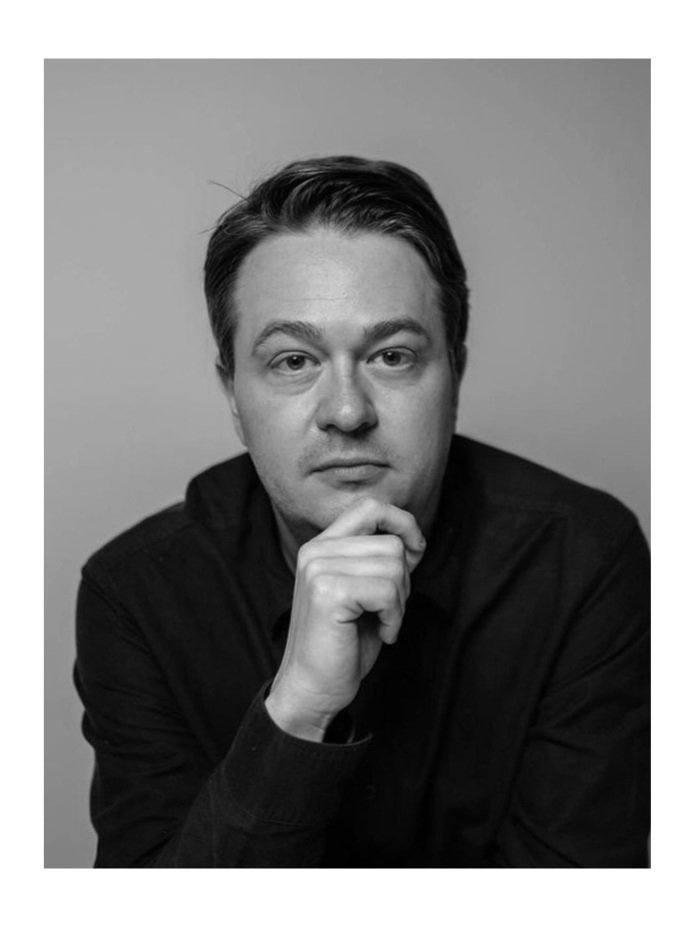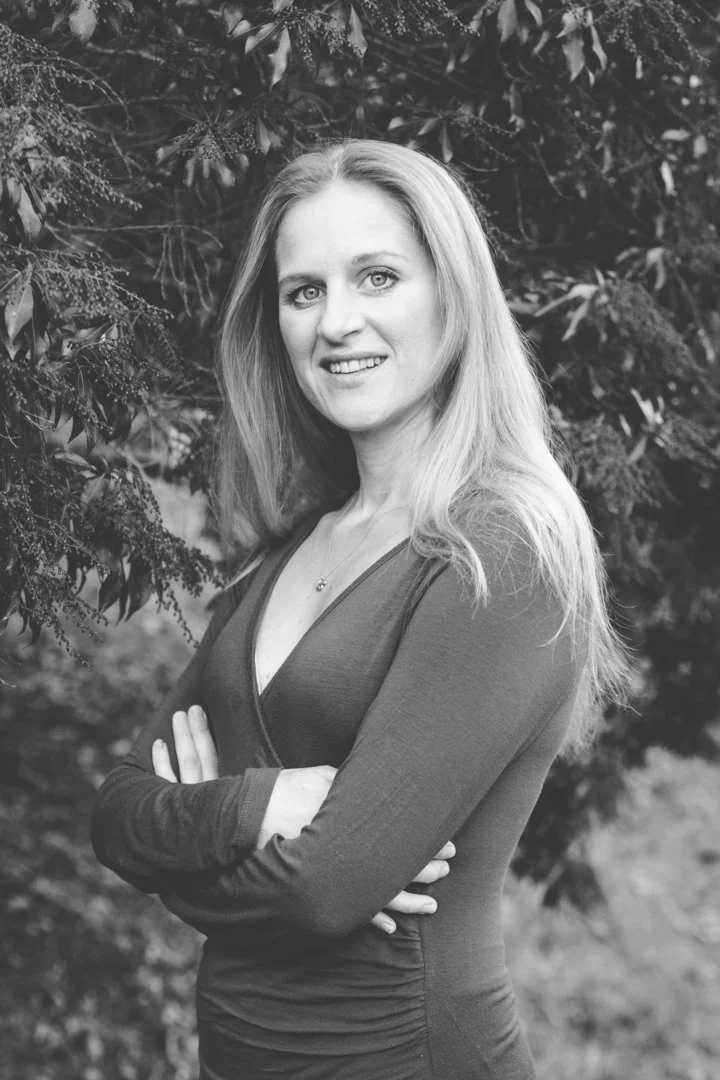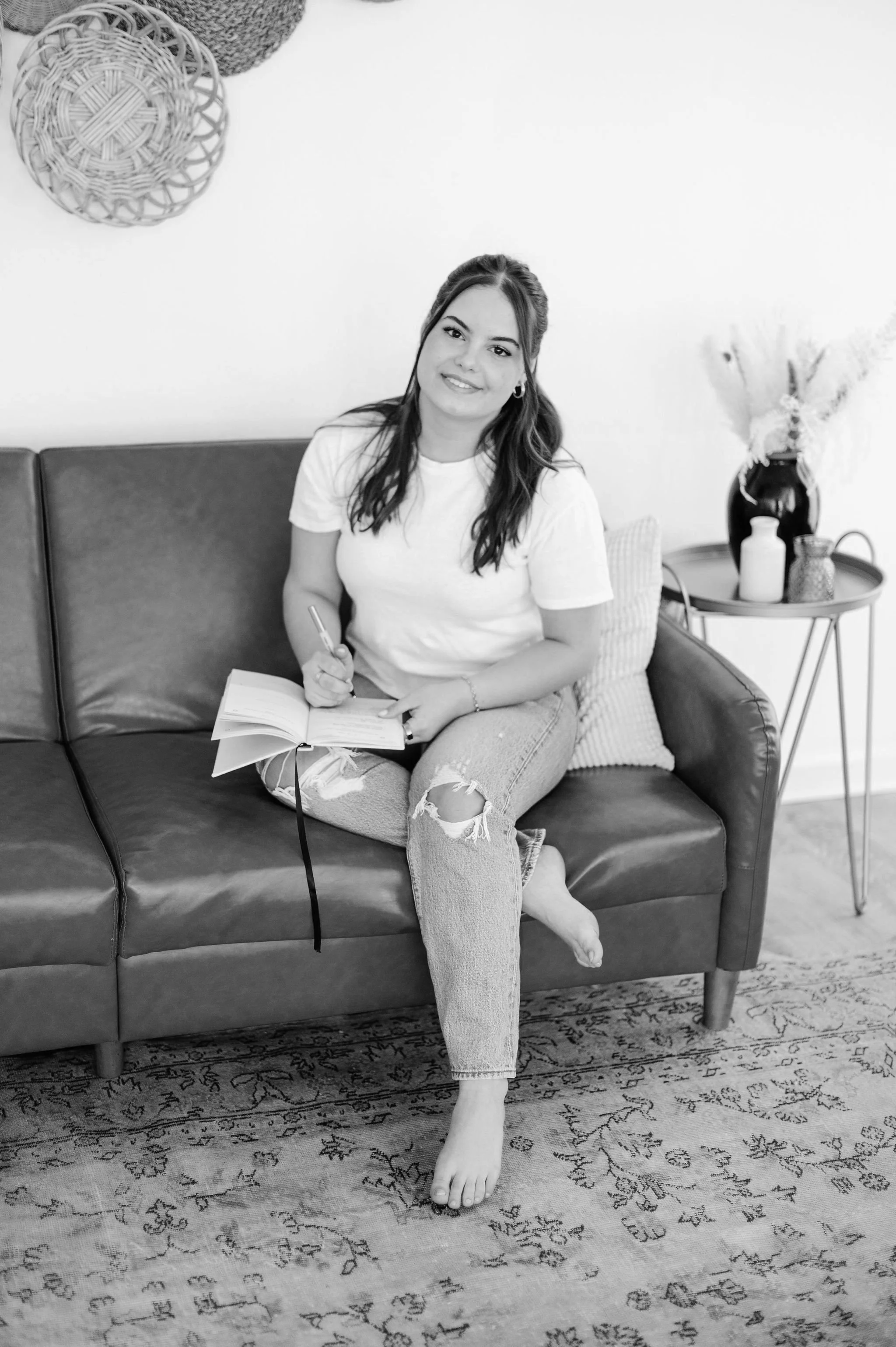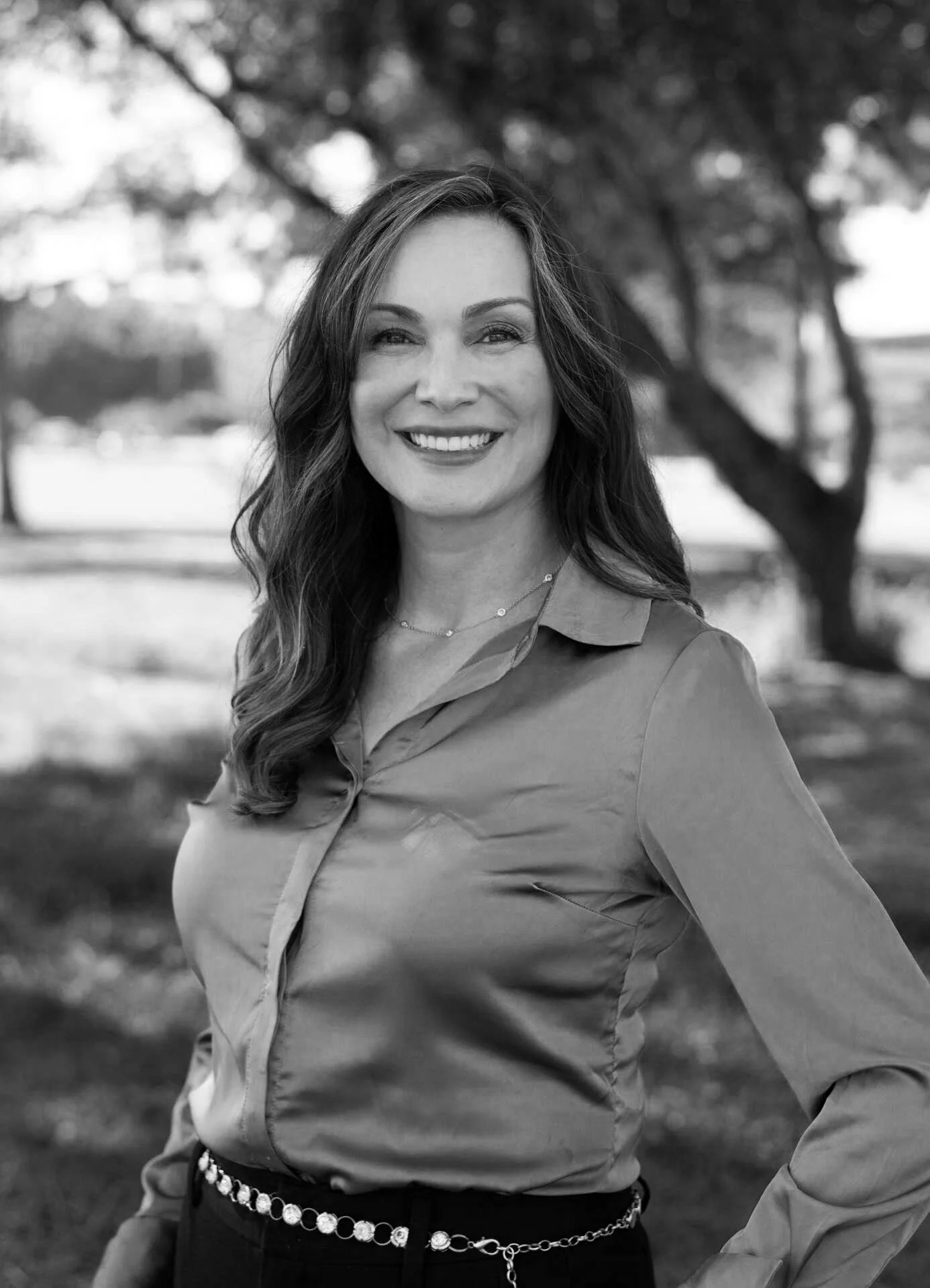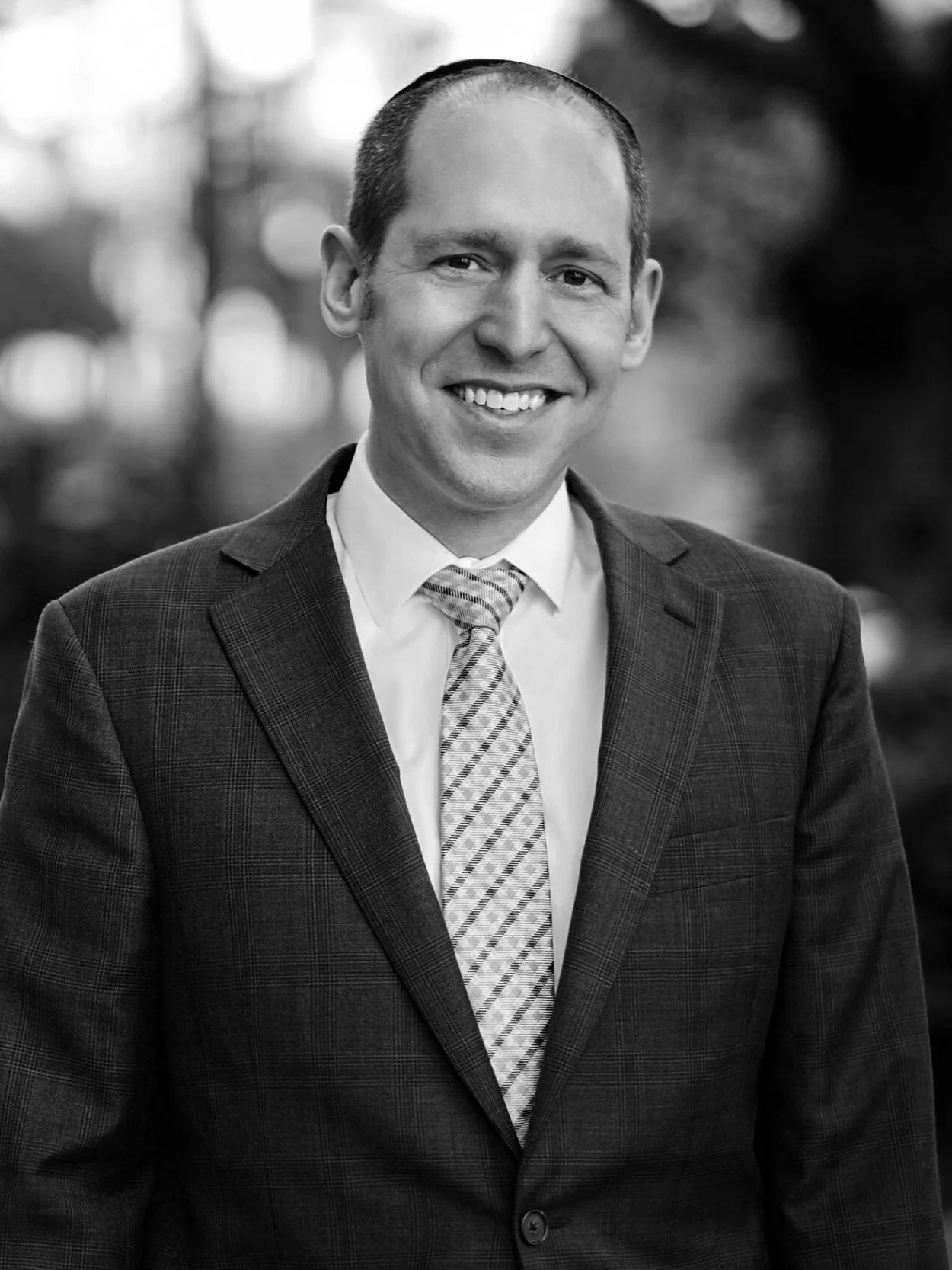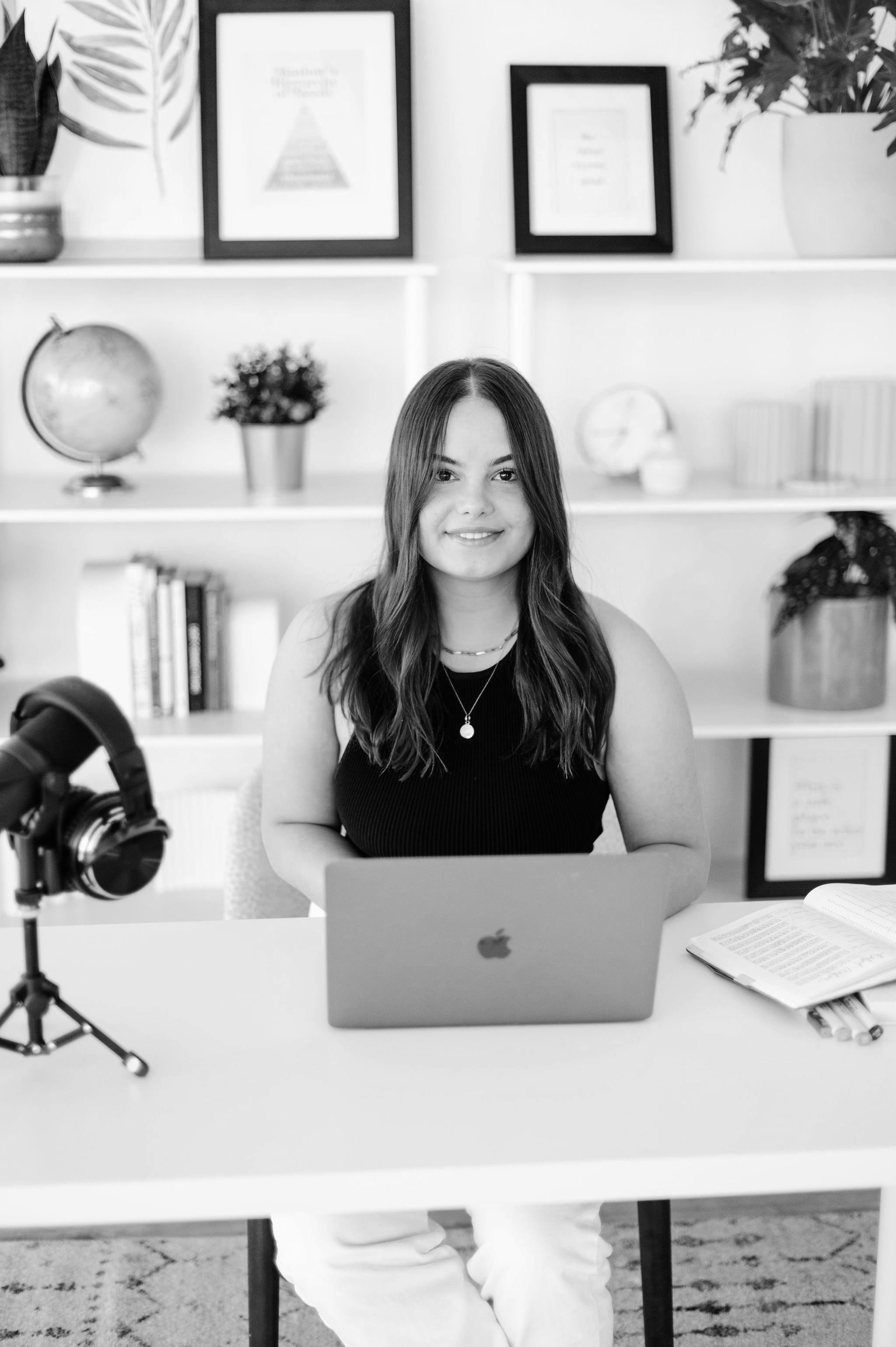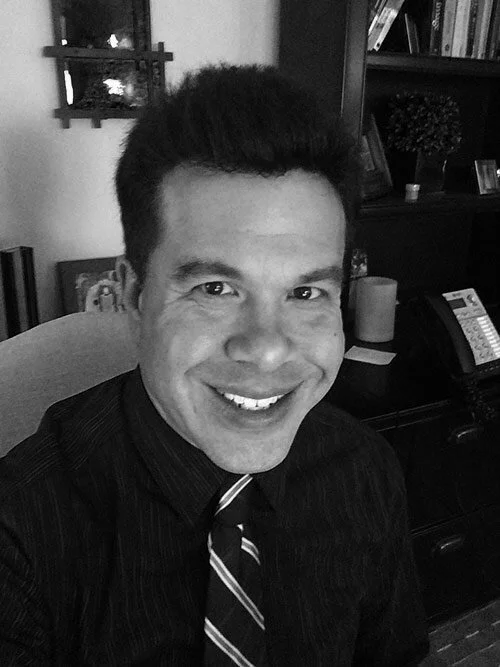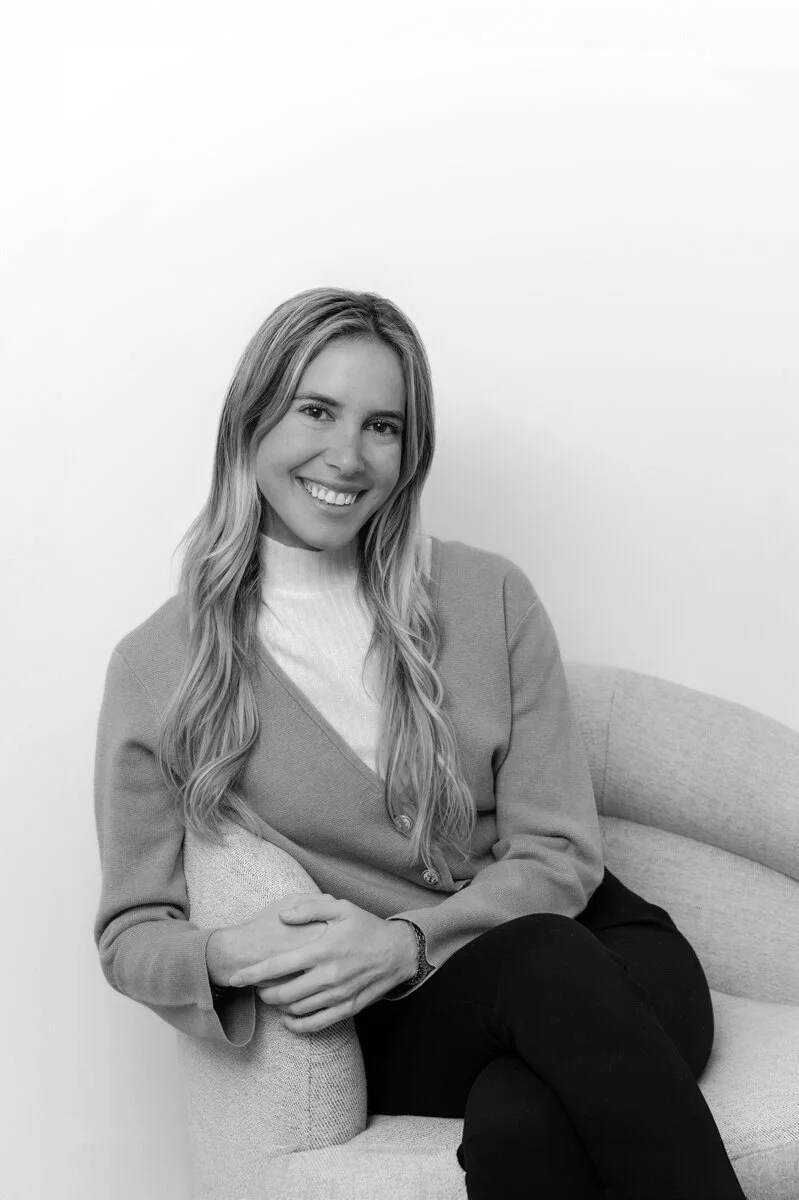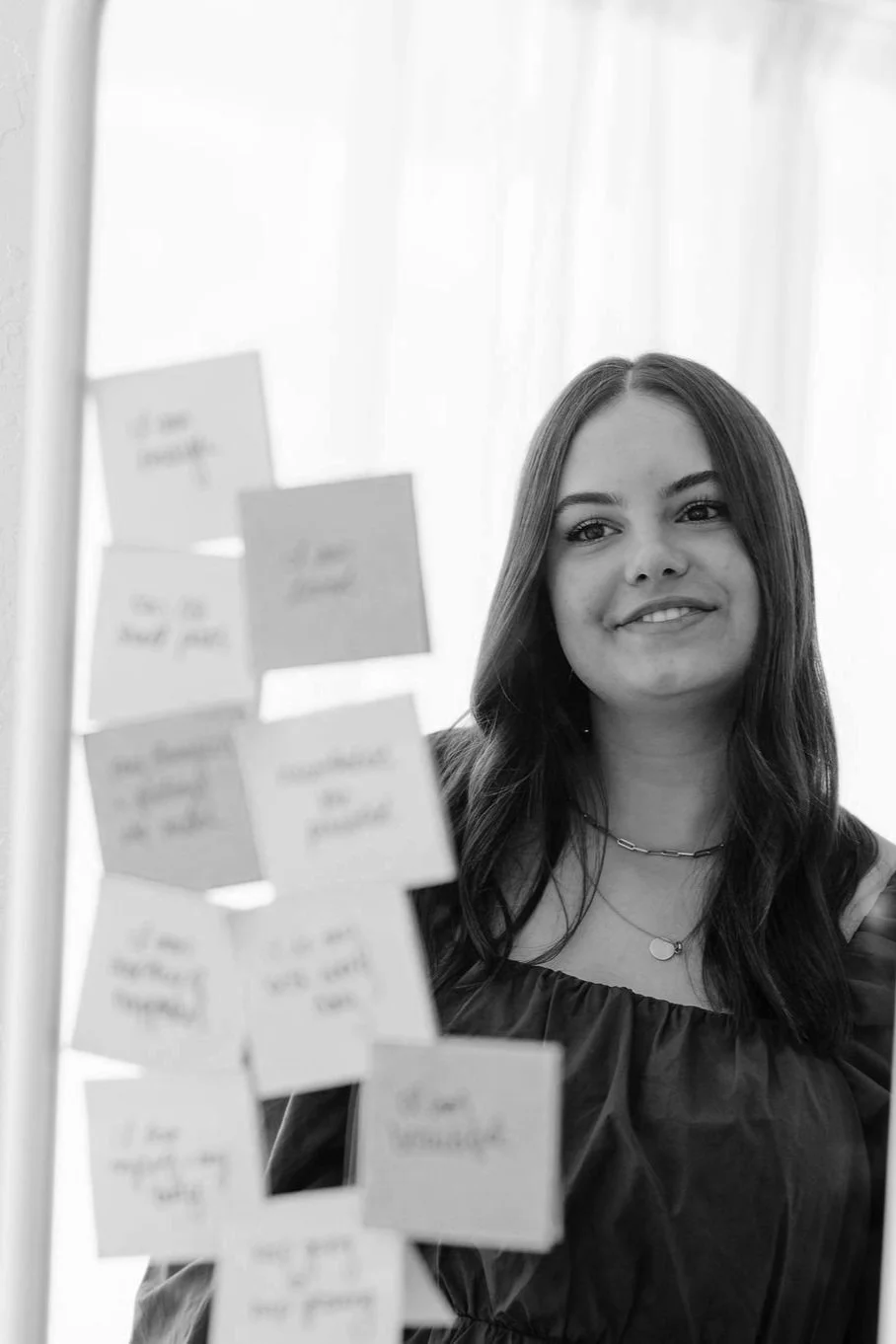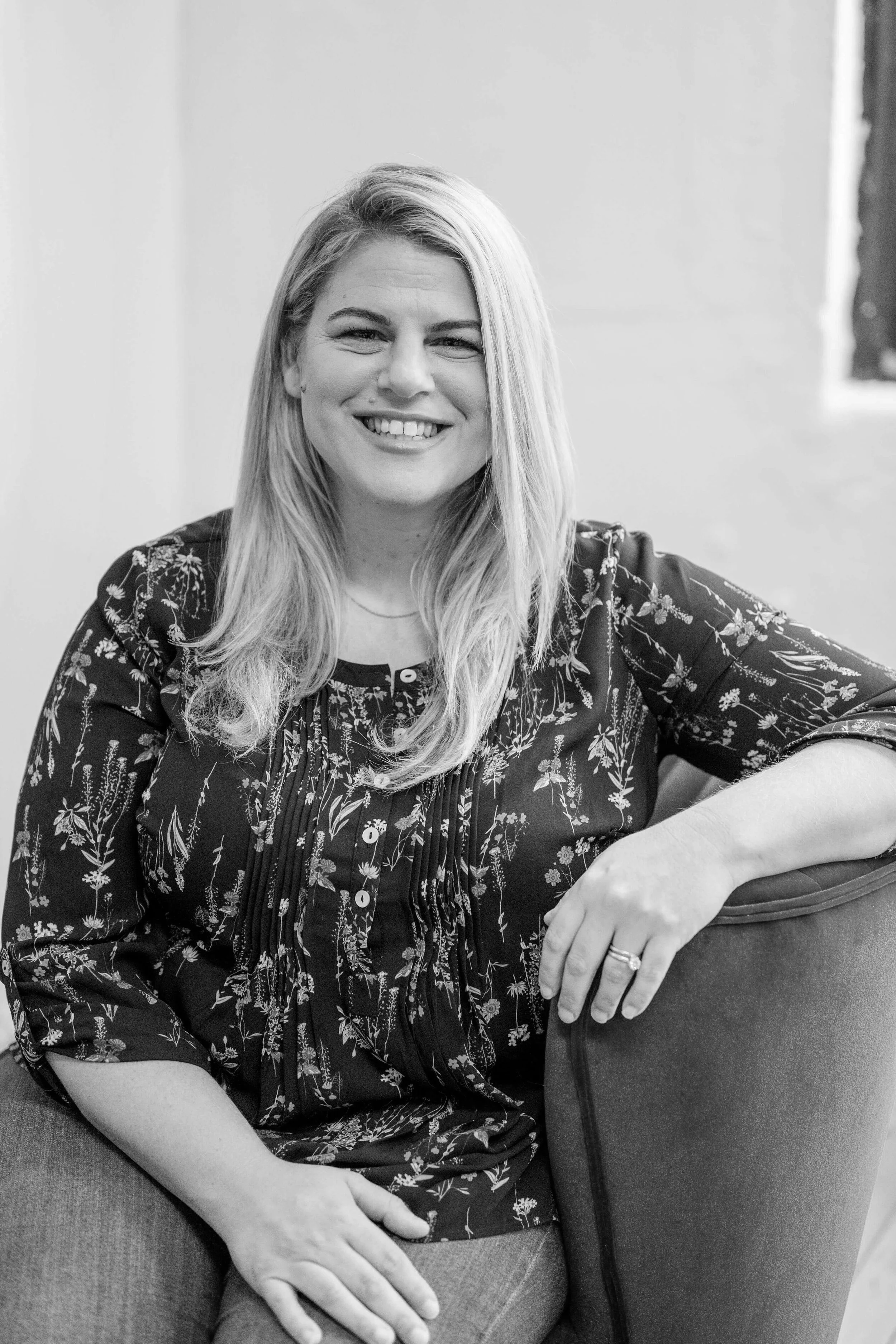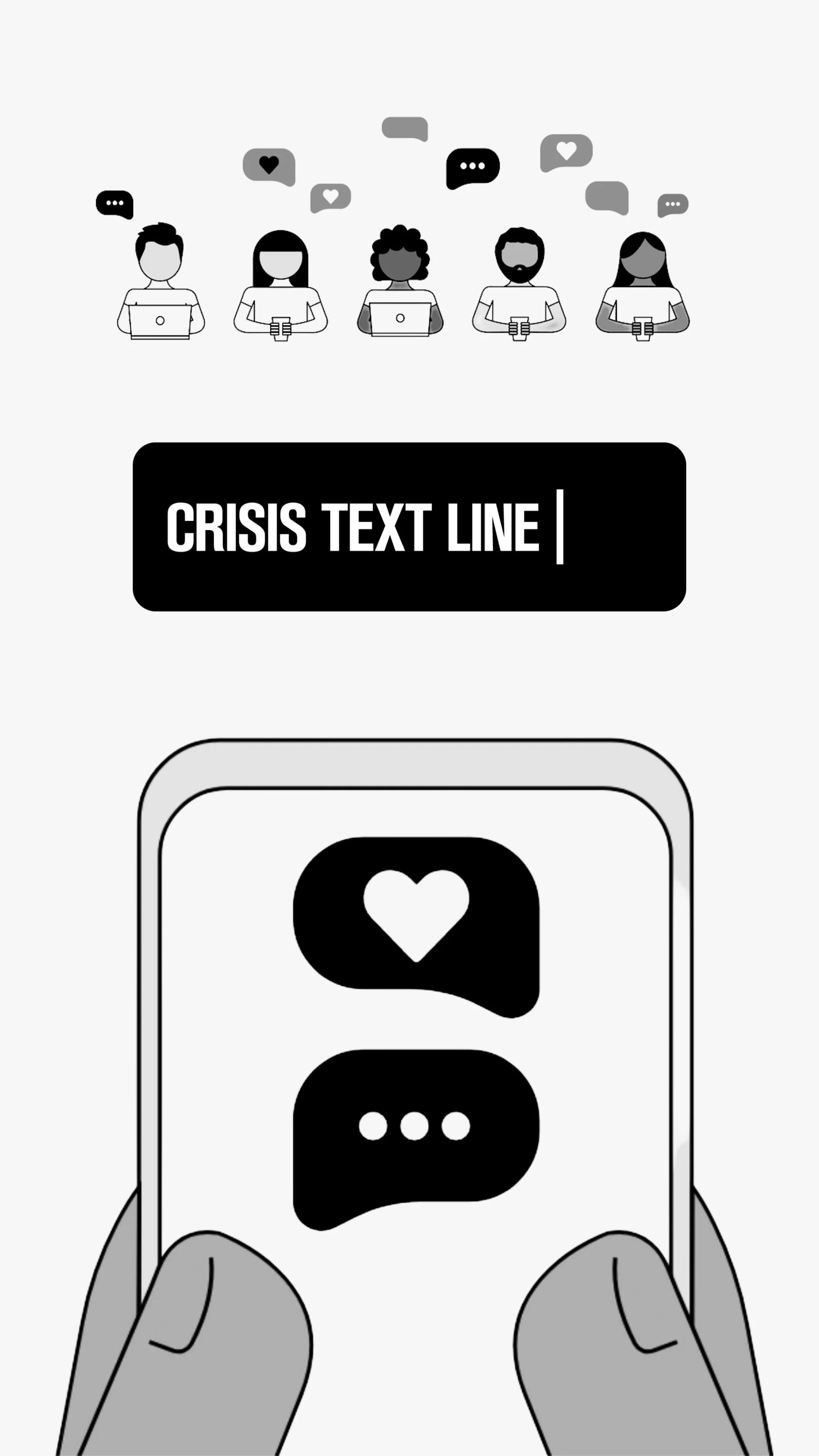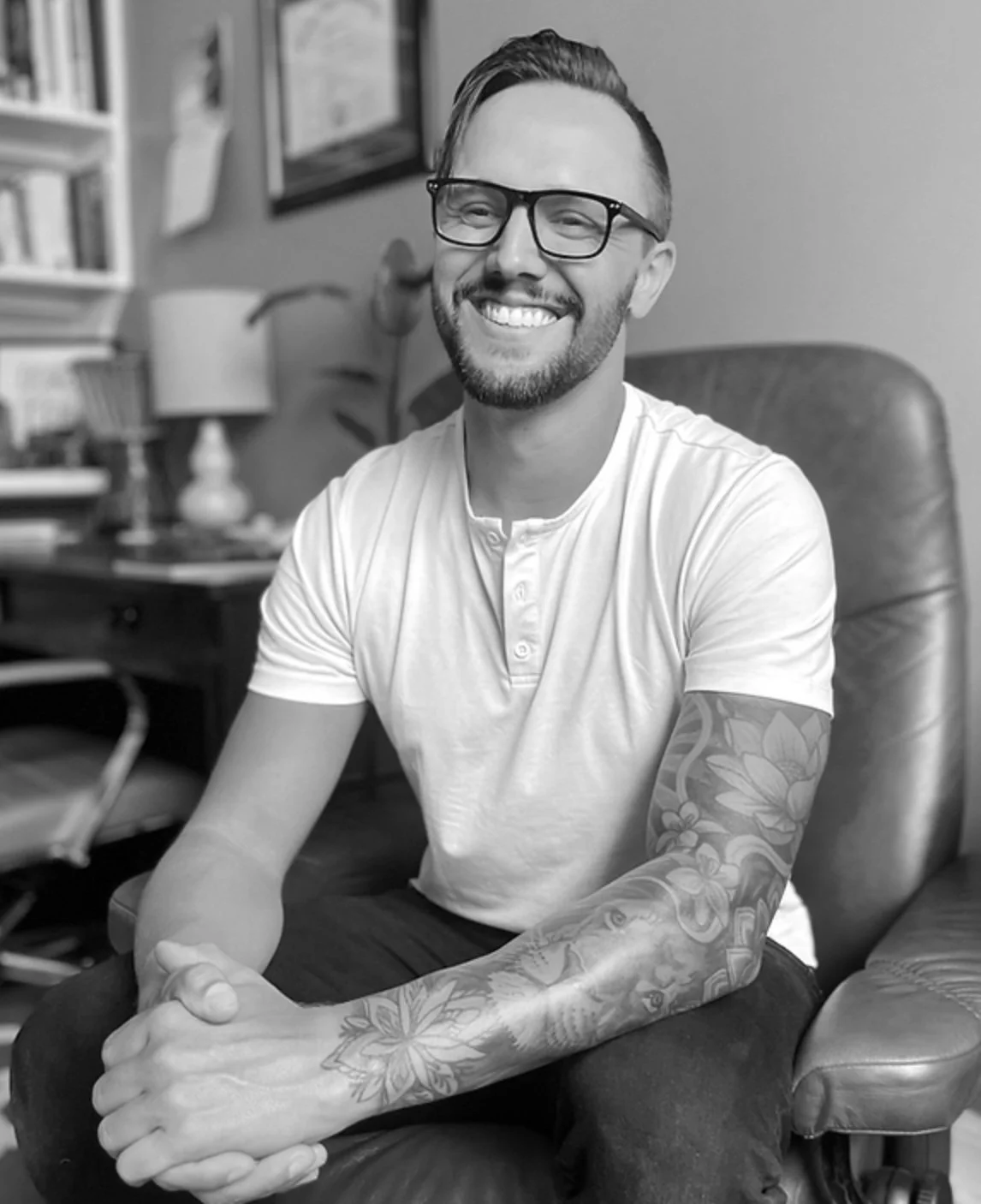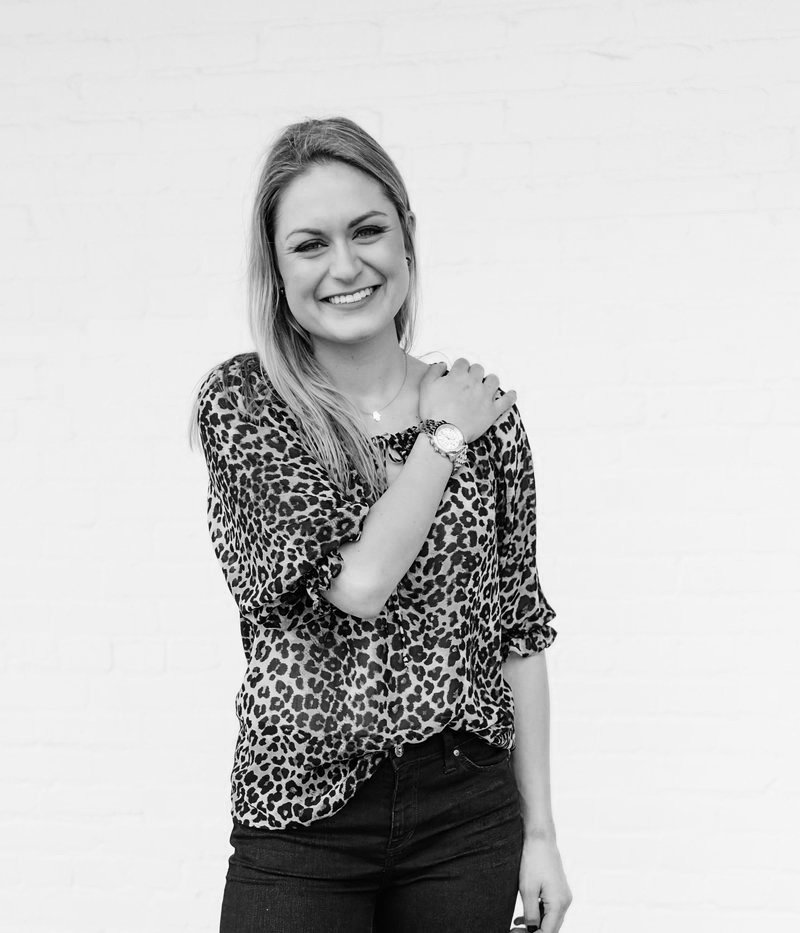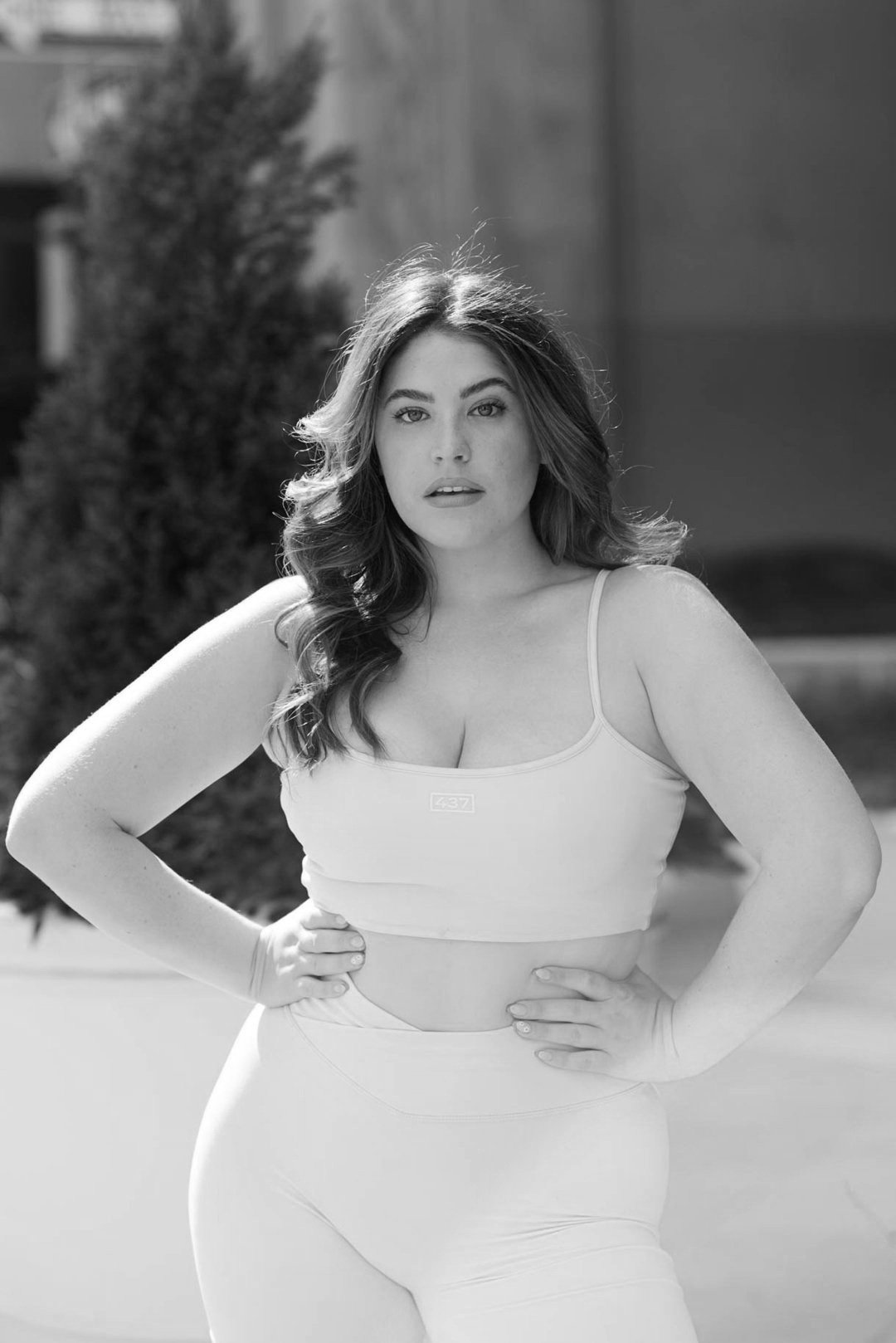108. Michael Slepian PhD on The Psychology of Secrets + How to Be More Vulnerable
listen to this episode:
Tune in and subscribe on your favorite platform: Apple Podcasts | Spotify | Stitcher | Google Play | Radio Public | PocketCasts | Overcast | Breaker | Anchor
Today's guest is Michael Slepian—the Sanford C. Bernstein & Co. Associate Professor of Leadership and Ethics at Columbia University, a recipient of the Rising Star Award from the Association for Psychological Science, the leading expert on the psychology of secrets, and the author of The Secret Life of Secrets: How Our Inner Worlds Shape Well-Being, Relationships, and Who We Are. We discuss what qualifies something as a secret, the most common secrets people keep, the psychology of secret-keeping, personal/relationship/identity consequences of secrets, the pros and cons of confiding in someone else, why being authentic will almost always be a positive experience, tips to increase your vulnerability, and when you should keep a secret.
Mentioned In The Episode…
+ The Secret Life of Secrets: How Our Inner Worlds Shape Well-Being, Relationships, and Who We Are
SHOP GUEST RECOMMENDATIONS: https://amzn.to/3A69GOC
Episode Sponsors
🛋This week's episode is sponsored by Teen Counseling. Teen Counseling is an online therapy program with over 14,000 licensed therapists in their network offering support with depression, anxiety, relationships, trauma, and more via text, talk, and video counseling. Head to teencounseling.com/shepersisted to find a therapist today!
☕️This week's episode is brought to you by Nutpods. Shop their delicious Vegan, Gluten-Free, Non-GMO, Kosher, and Whole 30 creamers today and use code 'SHEPERSISTEDPODCAST' at checkout for 15% off your order.
About She Persisted (formerly Nevertheless, She Persisted)
After a year and a half of intensive treatment for severe depression and anxiety, 18-year-old Sadie recounts her journey by interviewing family members, professionals, and fellow teens to offer self-improvement tips, DBT education, and personal experiences. She Persisted is the reminder that someone else has been there too and your inspiration to live your life worth living.
[00:00:00] Sadie: Welcome to she persisted. I'm your host. Sadie sat in a 19 year old from the bay area, studying psychology at the university of pencils. She processed. It is the teen mental health podcast made for teenagers by a team. In each episode, I'll bring you authentic, accessible, and relatable conversations about every aspect of mental wellness you can expect.
[00:00:20] Evidence-based Tina proved resources, coping skills, including lots of DBT insights and education. Each piece of content you consume, she persisted offers you a safe space to feel validated and understood in your struggle while encouraging you to take ownership of your journey and build your life worth living.
[00:00:37] So let's dive in.
[00:00:41] Hello. Hello. Welcome back to she. Persisted. I'm coming to you from Nantucket. I brought my microphone with me because I forgot to record this intro before I left.
[00:00:50] And I am in a really interesting limbo period, which I talked about last week, where we're about to start school. I'm starting to think about my schedule and organizing myself and what I want this semester to look like. And also, still enjoying summer and having less stress and less work to do since I've been here, I've been doing a lot of reading.
[00:01:08] I've already finished two books, very proud of myself, trying to exercise more, get my steps in every day and have those workouts and really get that set in stone, which is always a goal for me because working out's not fun. Anyways, I would love to hear what you guys are doing with the end of your summer is at the end of summer. We're almost in August. And how you are recharging and refueling before you are starting the fall semester. Because I know for me, if I'm not refueling, I get burnt out so quickly.
[00:01:35] So would love to hear what your tips are there.
[00:01:37] Today. I'm sitting down with Michael Sian. He is the associate professor of leadership and ethics at Columbia university and a recipient of the rising star award from the association for psychological science.
[00:01:48] He is the author of a book called the secret of secrets, how our inner world shape wellbeing relationships and who we are. And he just provides so much interesting insight on what happens emotionally, relationship wise and identity wise when we are. Being authentic or true to ourselves, whether you are lying, whether you are not sharing things or whether you're not being completely transparent and open about what your goals and tensions are.
[00:02:13] It was just such an interesting conversation and anyone that loves psychology will love this episode. So. If you would like to learn more about secrets. In addition to this conversation, definitely check out his book. It will be in today's show notes.
[00:02:25] And I had a really fun moment when we were traveling to Europe, we were in the airport and we always go through the bookstore because why not? And his book was on the shelf. Or like new releases or best sellers or something. And I was like, mom, dad, I interviewed him last week on my podcast. This is so cool.
[00:02:41] And they were like, okay, Sadie. Yep. That's great. But it was really exciting and really cool and really fun when those things kind of like become real life. So anyways, This conversation is amazing. You will learn so much and it's just, yeah, very educational. Very interesting. And I love sitting down with Michael, so I hope you enjoy this conversation as well.
[00:03:02] And before we dive into it, remember to subscribe and turn on download. So you don't miss feature episodes. We review. If you haven't already, it helps me in the podcast so much and follow on Instagram and TikTok at app sheep resisted podcast. So with that, let's dive into the.
[00:03:18] Thank you so much for joining me today, Michael. I'm so excited to have you and she persisted.
[00:03:22] Thanks for having me. Of course, of course. So we're gonna have a really interesting conversation today about something that I think is relevant to a lot of teenagers growing up. It's kind of something that most young adults navigate at some point, and that is keeping secrets. It's lying. It's deciding how important it is to you as a personal value to be truthful, to.
[00:03:42] To be transparent with people in your life. And you've done a ton of research on this. You have an amazing book that really dissects this. So if people are interested after the interview and wanna learn more, they can read that. But to start, I'd love to hear what your definition was of a secret, because there's a big spectrum.
[00:03:59] There there's like white lies. There's lying by omission. There's completely just making things up. So what do you define as a secret to the degree where you start seeing consequences in your life?
[00:04:11] Michael: So I define a secret as an intention to hold information back from one or more people. And so you can talk about it with someone else, but if you still tend to keep it from another person, then I would call it a secret.
[00:04:25] Sadie: and in your research, did you find that the, the degree of the secret correlated with the consequence, like a giant huge thing from a really close family member, friend loved one had more consequences or was it the same across the board? The secrets
[00:04:41] Michael: that have the largest consequences, the ones that affect our health and wellbeing most are the secrets.
[00:04:47] Find our mind returning to time and time again not the secrets that we have to frequently conceal in conversations. So it's the secrets that our mind kind of gets stuck on. Mm-hmm those are the ones that have the biggest impact
[00:04:59] Sadie: did you find common threads, common secrets that people.
[00:05:04] Keep across different walks of life, things that people consistently lie about or consistently struggle to be truthful about.
[00:05:11] Michael: Some of the most common secrets people keep include romantic desire issues around finances, sexual behavior, family secrets is a common one. Ambitions are a common secret.
[00:05:24] Also things like social discontent, sort of being dissatisfied with your social life in some manner then violating another person's trust. Those are some of the most common secrets that people
[00:05:32] Sadie: keep. Wow. So that's really interesting. It's not just like. Finding out about a piece of information and then not disclosing it.
[00:05:40] It's also, if you are you value something or you want to pursue something and you're not being transparent about that, that can also have similar consequences. Mm-hmm , that's super interesting. So talk to me about the psychology of what happens when you keep a secret. One of those things we just mentioned or something else, when you, you talked about ruminating on the subject, but what happens when you are intentionally not sharing a piece of information?
[00:06:07] Michael: So one obvious thing that happens is once in a while you hide it in conversation. But one reason why the definition is so important in this case is the moment you intend to hold information back from others is the moment you have a secret. Well, before you ever have the opportunity or the chance to actually hide it in conversation.
[00:06:28] And so the moment you intend to hold it, Is the moment that secret can start affecting you. We find that when someone has a secret, they're likely to have their mind, you know, they're more likely likely to ruminate on the secret and so we see that there's three different ways in which a secret can harm you.
[00:06:46] The more immoral you consider the secret to be. The more shame that secret can evoke. The more you see the secret as personal and sort of individual the more isolating it can feel to have that secret and the more emotional, the secret, the less insight you feel you have into it, or you're sort of unsure what to do.
[00:07:06] Sadie: Mm-hmm . Did you see any, like crossovers between people that are highly sensitive to feeling like shame or have low self-esteem that were more prone to feeling those intense emotions? Even if the secret did seem like smaller and not as extreme.
[00:07:21] Michael: So one way in which a secret can hurt you is when you're holding it back from other people, you're, you're likely to not find the healthiest way of thinking about it.
[00:07:30] And so if you're especially prone to shame, for example one thing you might do to try to deal with that is just not talk about it. Mm-hmm um, and people who, who, who habitually keep secrets as a way of dealing with problems. Are people who aren't actually working on those problems. And so secrecy is a way to sort of sidestep these experiences of feeling embarrassed or being too embarrassed to open up.
[00:07:56] But then if you're using secrecy as a way to handle those problems, you're, you're leaving them unsolved or unresolved
[00:08:05] Sadie: mm-hmm mm-hmm . So talk to me about the personal consequences, like personal wellbeing. Consequences that occur. When you keep a secret on we'll dive into relationships, we'll dive into identity as well.
[00:08:19] But what happens internally with your own mental health when you're keeping a secret,
[00:08:24] Michael: What we look at when we look at personal wellbeing, we'll look at things like health and wellbeing. Physical health we'll look at life satisfaction mm-hmm and having a secret people who have more secrets have lower life satisfaction. But also the, the question is not just whether. Secrets are bad or good, but equi, essentially, which secrets harm you and why?
[00:08:46] And the, the old idea here before I started doing my research is that the reason secrets heart hurt our health and wellbeing is because it's very stressful, high living conversation. But what we now know is actually there aren't that many conversations that we have where we have to hold our secrets back.
[00:09:06] You can only hide a secret in conversation when you're talking to someone from whom you're keeping the secret and talking about something related to the secret. It turns out that doesn't happen very often. People rarely ask us questions related to our secret, but we have all the time in the world.
[00:09:23] to simply think about the secret. And so, you know, what really seems to hurt personal wellbeing is not that we have to hide secrets, but that we have to live with them alone. In our thoughts.
[00:09:35] Sadie: Two days episode is brought to you by Nutpods. If you are not familiar with nut pods there, whole 30 kosher, non GMO vegan, and gluten-free creamer company. They have so many amazing flavors and they just came out with a collaboration with Chamberlain coffee, with there are three favorite creamers, which is caramel, French, vanilla and sweet cream. My two favorites are French vanilla and sweet cream. So we have that in common.
[00:09:55] But what I love about Nutpods creamers is that you can buy them in bulk and they don't have to be refrigerated until you open them. They have unsweetened and sweetened, and these sweetened ones have zero grams of sugar, which I love it is perfect. An iced coffee, hot coffee. They also have barista milk.
[00:10:09] So that you can put foam on top of your coffees. This is one of my favorite hacks at college because you obviously have limited fridge base and coffee can get super expensive if you're going to Starbucks every single day. So what I do is my make my iced coffee.
[00:10:22] I added my net. Sweet cream or French vanilla creamer. And I'm good to go. I break it to class. I drink it before I leave my room, whatever it's amazing. And I can get like six bottles, not have to worry about them going bad. And it's so convenient. It's my favorite.
[00:10:35] So, if you would like to check out Nutpods, you can go to the link in today's show notes or use code. She persisted podcast, a checkout for 15% off your order. Again, that is the link in today's show notes, or use code. She persisted podcast at checkout for 15% off your order.
[00:10:51] What does that rumination look like when people are really, their thoughts, again, are controlled by these secrets and you have someone who's like an insomniac they're going to bed.
[00:11:00] And the, the secret is just running through their head, these scenarios of how it could possibly come out. What is. Look like with the people that you researched with,
[00:11:11] Michael: what it often looks like is sort of perseverating on the past, you know, sort of your regrets or, or feeling like how could I have done this, or I feel so stupid.
[00:11:21] When we focus on the past in that way, It often doesn't get us anywhere. You can't change the past. There's the more helpful way of thinking about it is lessons learned and, and thinking about what you wanna do into the future. But when we're alone with a thought, we often get these sort of unhelpful loops of thinking where we're just kind of like rehashing the past and that often doesn't get you.
[00:11:46] Sadie: So with regards to relationships, you mentioned that the keeping a secret is often more harmful to yourself because there's such a small window of time when it would possibly, you would have that stress of telling the other person. But obviously not being truthful can have negative impacts to the relationship.
[00:12:04] So what did you find from a psychology perspective happens in relationships when you're keeping secrets. So
[00:12:11] Michael: when you're keeping a secret from, for example, a romantic partner or a really close friend one way that that can hurt the relationship is if it makes you all of a sudden not forthcoming or, or closed off if one way to keep a secret from someone is to make sure you just never have conversations related to that secret. And so you would never bring up topics. You, you never bring up this sort of general topic that this secret is about, but the risk there is that the other person. Notices. They notice that there's something you're not saying, or, you know, there's something that's bothering you, but you're not revealing what it is.
[00:12:49] And, and why that hurts the relationship. Is it doesn't feel good to, to feel like that your, your close friend or, or your romantic partner doesn't feel comfortable. To open up to you that doesn't feel good. It feels like they're excluding you from, from something important. They're excluding you mm-hmm from their life.
[00:13:09] And that, that will have negative implications for the relationship.
[00:13:14] Sadie: What are the consequences that occur? When say a friend ropes you into a secret, like you're gossiping with someone it's not your secret that you found out, but now you are partaking in the secret keeping what happens there.
[00:13:27] Michael: when someone confides secret in you, there's good and bad.
[00:13:31] The good is that you, you recognize that, especially if it was something that would be difficult to talk about, you recognize that they have made themselves vulnerable to you and that they felt comfortable opening up to you. And so when people confide in you, you recognize that as an act of intimacy and that can bring us closer together, but at the same time, If now you have to keep the secret on their behalf, it can become burdensome, just like our own secrets.
[00:13:56] And we see that as more likely to the extent that your social networks overlap. So if you, or, or that the secret is involving someone that you know essentially now, if you have to watch what you say to other people around you that other person's secret can become a burden to.
[00:14:12] Sadie: It's like a two-sided coin, because to one extent, you're like, it's not as much of a secret because now the person is told one person.
[00:14:18] So there's not that stress of, like, I can't tell anyone you've told one person, but then there's two people that are dealing with the rumination, the relationship consequences. So from your research, did you, did you kind of determine if it's almost worse to have multiple people hiding a secret or just one person?
[00:14:36] Michael: Yeah, that's interesting. We've we haven't done the research and the research hasn't been done yet. But it makes me think of something else that you would wanna be mindful of when trying to decide who to tell your secret to we see that. You know, one risk, of course, with revealing your secret to someone is they reveal it to a third party.
[00:14:58] They reveal it to someone that you wouldn't want them to, to reveal it to you. And we see that that is more likely to happen to the extent that the person who's been confided in considers what you've told them to be imoral. And so if someone is gonna be scandalized by what you're telling them, they might not be the right person to talk to because the more.
[00:15:20] that they, you know, essentially the more they feel that what you've done is wrong, the more likely they are to tell someone else about it, essentially as a form of punishment. And so you really want to be careful about who you choose to reveal your secret to often it makes things better, but. The question is here.
[00:15:39] Yeah.
[00:15:40] Sadie: So talk to me about the sense of identity component. Obviously, it's very difficult to have a sense of identity. If like we talked about at the beginning, you're not sharing like what your desires are, what your passions are, what your dreams and goals are. So what happens when you're keeping secrets in those realms to your sense of identity?
[00:15:58] Michael: One really important part of identity is other people. The way we learn about ourselves is through sharing ourselves with other people. And so when you hold back from other people, You don't get a sense of what they, you know, how they respond how they would respond to, to learning this thing that you've done.
[00:16:21] And so when you reveal a secret to someone, not only can they help you with that secret, but they can sort of help you think through the implications of that. And they might, you know, they might say like, I understand, or they might say, I can see, you know, I can see having made the same mistake and, and it might help you understand that, you know, you're not a bad person.
[00:16:39] You, you made a mistake and, and people make mistakes, but when you choose to be totally alone with something, it's all too easy to come to the conclusion, oh, I'm a bad person or I'm worthless. And you know, that's what we call. and simply talking to another person can, can make the world of difference in helping you understand, you know, maybe you did a bad thing.
[00:17:01] That's very different than I'm a bad person. And that's a conclusion that can be hard to come by when you're stuck alone in your thoughts.
[00:17:08] Sadie: That's so interesting. One of my. All across the board, most ask questions is how to ask for help, how to advocate for your help with your mental health and what you just highlighted is I think something that's very universally true, which is if you're struggling with these scary things like depression or anxiety or suicidal ideation or.
[00:17:28] Urges, you would get into that thought spiral of like, I I'm a bad person because of this because you haven't looped anyone in. No one is saying mm-hmm, so many people have experienced this before. It's treatable. It's possible to feel better. Let's get you support. And so I think, especially in regards to mental health, which you wouldn't necessarily.
[00:17:47] Frame is like a secret, but like you mentioned at the beginning, it's intentionally not sharing something, even if that's a goal, a desire, passion, which to me are like those three things are, you would never be like, oh, that's a secret. It's just, you're, you're not sharing it, but it really does have the same impact.
[00:18:02] So I think that really speaks to why it's so important to again, share with other people, ask for help because you can just have such profound Support that you would never be aware of if you don't for that first time, be vulnerable and, and ask for help. If people attempt to share a secret, ask for help share something that they're anxious about being vulnerable about, and it goes badly.
[00:18:28] Have you found that they're even more avoidant of sharing that secret in the future? Or is it like you've done it once going forward? It's easier.
[00:18:37] Michael: The most important thing to know here is that it very rarely goes so poorly. We see that the average response to confiding in someone is very helpful. Even a Luke warm response people find helpful.
[00:18:54] And this just goes to show how, how hard it is to be alone, entirely alone with something that people don't have to risk. People could just say that sucks or that I'm so sorry to hear that. And that is helpful. It turns out we don't actually need all that much to feel better. Only when someone responds very negatively.
[00:19:14] Do people regret, confiding and feel like it's backfired. And when is that more likely that's what we were talking about before. If for some reason, this person just won't understand what you're talking about. Yeah. Being or would think
[00:19:26] Sadie: that it's the other person mm-hmm
[00:19:28] Michael: that's and so choosing. we see that people really prefer to confide in people that they see as compassionate, someone who will be non-judgmental and sort of empathic.
[00:19:39] People also like to confide in people who are assertive, someone who will push you to do something. And so those qualities will often prove helpful.
[00:19:48] Sadie: That's so interesting. And it almost is like that, that first vulnerability I've always thought of it as. More something you're doing for yourself than you're doing for validation from the other person, because the anxiety you feel about sharing is so much more overwhelming than like the validation that you might get like, oh, wow.
[00:20:07] That sucks. I've been there. Like that seems so in like, so circumstantial compared to like, oh my gosh, I just. Completely navigated this giant challenge. I was able to overcome this anxiety. I was able to share this with this other person, despite maybe feeling rejection. So it's really something that you do for yourself almost more so than being like, I need to tell this person, so that they'll say that it's okay or that they've been there.
[00:20:31] And so I think that almost makes it a little bit easier because you're taking out that component of how will this other person respond? Like, yes, that's anxiety provoking, but you're more. Nervous about like how that will make you feel, how the response will make you.
[00:20:45] Michael: and they're gonna respond often more positively than you expect them to.
[00:20:49] And then another thing to think about here is, you know, making yourself vulnerable, revealing something to someone you wouldn't just tell anyone it's this profound act of intimacy. People often think about their secrets, you know, as this sort of difficult thing that they don't know what to do with. And like, no, you could never like you can, it would be a disaster to reveal it to someone, but actually it.
[00:21:11] It's this powerful thing that we can do with our secrets is to share them with other people. And it really, it's easy to forget that that opening yourself up to someone is, is a really, it's a way to, to deepen a relationship with someone. And so you'll get a little help and, you know, you'll sort of, it's, it's a way to maintain and, and deepen relationships too.
[00:21:36] Sadie: Two days episode is brought to you by teen counseling.
[00:21:38] Telehealth therapy is one of the greatest things, because even when you're out of town at college, or you just don't want to go into a therapist's office to have your session, you can still continue your therapy journey and get mental health support. So, if you're not familiar with teen counseling, their better helps branch for teenagers. So all these clinicians specialize in working with adolescents and teenagers on all the issues that are important to you, whether that is depression, anxiety, relationships, trauma, school, stress, literally anything and everything they have over 14,000 licensed therapists in your network.
[00:22:09] So you're bound to find one that works for you. And they offer talk text and video counseling. So depending on what level of support you're looking for, you are able to get it. So you can do video counseling once a week, once every other week. And you can text your therapist in between sessions, whatever works for you.
[00:22:25] So if you wanna check out teen counseling, you can go to teen counseling.com/she persisted or used the link in today's show notes. Again, that is teen counseling.com/she persisted to find a therapist today. so advice for people that are scared to be vulnerable, scared to ask for help or share something that they've never shared before. Is the advice just blanket don't keep secrets. Is there a certain way you should work up to sharing something that you're scared about? Divulging, what tips do you have for listeners who would like to be more vulnerable, but that's really scary.
[00:22:59] Michael: So again, it's, you know, choosing the person carefully, choosing someone who you think will be understanding to some degree who will sort of be compassionate to some degree. And then when, you know, maybe it's something that's really difficult to talk about and you, you sort of identified who the person might be, and you could say like, Hey, you know I'd love to.
[00:23:23] Talk to you about something. And even just that can really make it a lot easier to then talk to that person about that thing. One of one thing that's so difficult about secrets is there's, there's very rarely the moment. That just makes it so easy to, to reveal. If you know, I I've been in this situation before where you have a secret and you're, you're like, okay, I'm going to reveal this secret.
[00:23:47] I'm just gonna wait for the right time. And it never comes. You kind of have to create that situation for yourself and just say, Hey, I'd like to ask you something or I want to talk about something or there's something serious I'd like to talk about. Whatever's the sort of thing that can get the conversation started.
[00:24:05] In a way that's less threatening rather than just like coming out and saying it, which might feel out of the blue. Maybe even flagging what the general topic you wanna discuss is that can make it a lot easier. Yeah.
[00:24:19] Sadie: When I was in residential treatment, we did this thing called exposure to exposure. It was one of our group therapies that we did every single week.
[00:24:26] And we would have this thing called vulnerability group where you would, everyone would like sit in a circle and you'd be vulnerable about one thing. It didn't matter what it was, but it had to give you that anxiety. Then you would work through it and. It was like, everyone's least favorite thing. Like we would like count down the days, like, oh my God.
[00:24:43] People would be like, I can't go today. I'm having a mental breakdown. And the staff would be like, Nope, you have to go. And they'd be like, okay, fine. Setting yourself up in a, in a situation where you can handle being vulnerable in that safe environment, where you can work through that, made it so much easier to then in the future, be vulnerable with a parent or with a friend or with an adult that you trust because you've shown yourself that you could handle those emotions.
[00:25:08] You you've exposed yourself to that threat in a safe environment. And you knew how to cope with the emotions that arose. You were able to handle the situation effectively. Yes. It was scary and overwhelming to be vulnerable, but like you mentioned in most situations, it goes, well, it's perceived, well, it's not a negative experience.
[00:25:26] Especially if you're intentionally choosing your audience. And so I think that's a great way as well, to kind of. Practice being vulnerable practice, sharing these secrets so that you can work up to whatever this big overwhelming thing is that you wanna talk to a parent friend, family member about.
[00:25:41] But it seems too scary initially
[00:25:45] Michael: and in what it is that way, when it does require some courage or some bravery know that the other person will recognize that. And, and. understand that and appreciate it. Mm-hmm
[00:25:58] Sadie: Did you find that there was ever any times where it's good to keep a secret?
[00:26:02] I feel like there are so many different social situations. We were like telling this person, this thing that someone's saying about them will just hurt their feelings. Are there situations like that where you're like, it's okay to keep a secret. Like it makes sense. You don't have to 100% be vulnerable and transparent all the time, or is it better for your own mental health relationships and identity to just be transparent all the time.
[00:26:25] Michael: There's definitely a class of secrets where it's, you're better off by keeping them if what you're going to do by revealing it is hurt someone else. You know, someone said something very negative about someone that, you know, That there's not often much gained by then telling that person, that thing, except for making them feel worse.
[00:26:46] And so certainly situations like that, if you feel like you're protecting someone or protecting someone's feelings by keeping a secret often it's the right decision. Now if it's something really big that nag, you feel like you're struggling with having to keep this sacred yourself. You could talk to a third party about it.
[00:27:04] You don't have to reveal it to the person that's gonna get hurt by it. But you could, if you feel like you need to talk about it, like you could carefully choose someone else to talk about it with while still protecting that other person.
[00:27:14] Sadie: Yeah. I think that's huge. And you can even use the third party to figure out how to frame it in a way that's not hurtful.
[00:27:21] Like if it's something that's negative. Yeah. Being like, I think maybe you should talk to this person cuz they're not being so nice. Did something happen there? Like what's going on without necessarily. Intentionally hurting their feelings or going into the situation and causing more consequences than necessary.
[00:27:37] Michael: Yeah. And for any really big secret that you're just not sure whether revealing it is the right thing to do. You don't have to figure that out alone. Like again, you can talk to someone else and they can help you think through it. Yeah.
[00:27:51] Sadie: What is the one takeaway that you hope people have from reading your book and learning about the psychology of secrets?
[00:27:58] Michael: The one takeaway that I'd hope for people that take away is if there's a secret that's bothering you or upsetting you talking to someone else about it, it, it just, it can just make this whole world of difference. Just talk about it with someone and you don't have to reveal it to who you're keeping it a secret from, but so much can be gained by talking to someone else about it.
[00:28:20] I
[00:28:20] Sadie: love that to wrap things up, where can people buy your book? Where can they continue to consume your content?
[00:28:25] Michael: You know, you can buy it at all the usual places. If you wanna learn more about the different kinds of secrets people keep, you can go to keeping secrets.org. That's where you can. Look at all the categories of secrets that we use in our research.
[00:28:39] And then if you want, you can take the survey and you can also see how your secrets compare to people of the same gender of the same age and sort of, we let you play with the data.
[00:28:48] Sadie: Awesome. Well, I will link both of those in these show notes. Thank you so much, Michael, for joining me today. I'm so excited.
[00:28:54] We got to do this. Yeah. Thanks for having me. Of course.
[00:28:58] Thank you so much for listening to this week's episode of she persisted. If you enjoyed, make sure to share with a friend or family member, it really helps out the podcast. And if you haven't already leave a review on apple podcasts or Spotify, you can also make sure to follow along at actually persisted podcast on both Instagram and Tik TOK, and check out all the bonus resources, content and information on my website.
[00:29:19] She persisted podcast.com. Thanks for supporting. Keep persisting and I'll see you next week.a note: this is an automated transcription so please ignore any accidental misspellings!
© 2020 She Persisted LLC. This podcast is copyrighted subject matter owned by She Persisted LLC and She Persisted LLC reserves all rights in and to the podcast. Any use without She Persisted LLC’s express prior written consent is prohibited.


